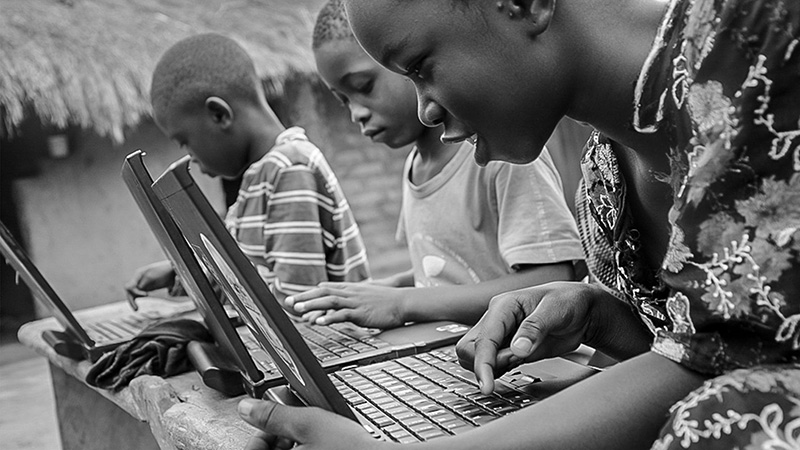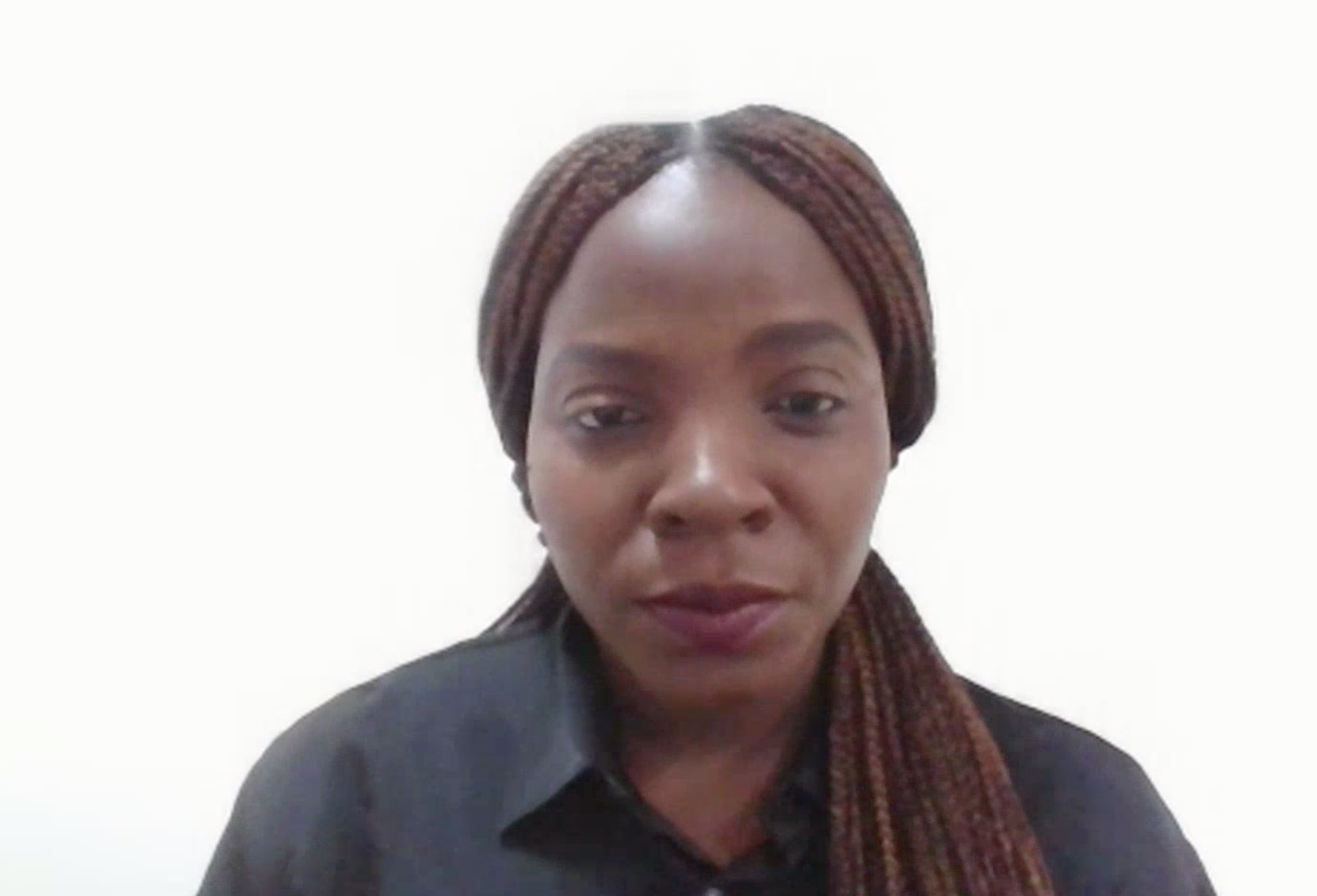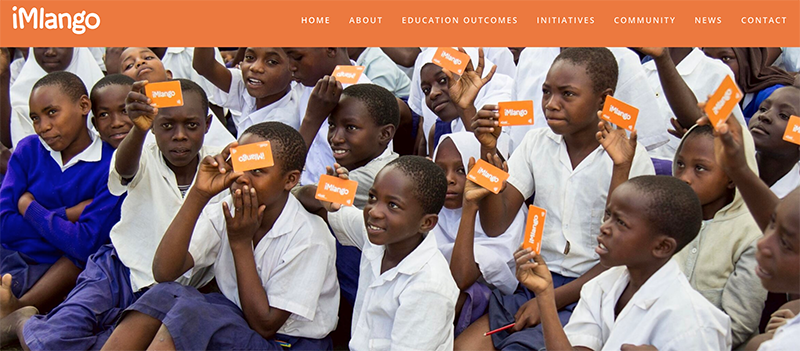The luckiest man on the planet
Ousman Umar has been reborn on several occasions. The first one was right after he was born, when his father, a tribal shaman, saved his life after his mother died during childbirth. The second one was when he survived a hellish journey to reach Spain from Ghana during which he saw almost all his companions die, an experience that included immigration mafias, the Sahara desert, Libyan prisons, the small boat and the intense loneliness of the streets of Barcelona. Despite the above (or perhaps because of it) he regards himself as the luckiest man in the world. Because he survived to tell his story.
At the age of 18, without knowing a single word of Spanish, he began to study and, within six years, he passed his school-leaving exams and got into university. He graduated in Business Administration and Public Relations and Marketing and completed a master’s degree in International Cooperation at ESADE. Nowadays, he uses his experience to help Ghanaian children to study and thrive in their own country, thus saving them the ordeal of setting out on a journey that only three per cent of those who embark on one survive.
Paradise isn’t in Europe, it’s in our minds
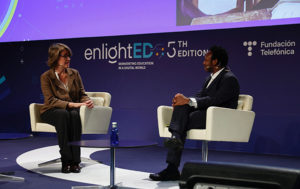
But let’s go back to the beginning of the story. It all started with a plane crossing the sky. Ousman was a child at the time in his home village of Fiaso in the Ghanaian bush. When he asked the local elders what it was, they told him that it was something “built and flown by white people”. From then on, as he recounts in his book, he wanted to be white. And live in the white paradise. So, at the age of 13, he embarked on a fateful journey that lasted five years, covered 21,333 kilometres and took him to eight countries. “Out of 46 people, six of us survived”. When he arrived in Barcelona he lived on the streets for two months “feeling more alone than in the desert” until a woman, Monse, took him into her home and welcomed him as if he were just another member of her family.
That hellish journey helped him to understand many things: “I realised that paradise wasn’t in Europe, it was in our minds” and that education is the only way of putting an end to illegal immigration, fuelled by the false expectations that have been generated about the European continent.
When his younger brother wanted to make the same journey as the one that almost ended his life, Ousman persuaded him to change his mind; he should study and prosper in his own country. It was then that the two brothers founded NASCO Feeding Minds, an organisation to promote access to education and information for children in Ghana.
“I realised that paradise wasn’t in Europe, it was in our minds” and that education is the only way of putting an end to illegal immigration, fuelled by the false expectations that have been generated about the European continent.
Shifting the paradigm of humanitarian aid by “feeding minds not stomachs”
“We’ve seen 77 years of humanitarian aid and billions of dollars invested, but Africa is still the poorest continent”, argues Ousman. The solution to the immigration issue isn’t pulling corpses out of the sea. The solution lies at the root of the problem, which is related to the lack of opportunities and access to information in rural communities in Africa. The solution isn’t to send food, which only feeds a stomach for one day. The solution is to feed minds through digital education.
His organisation was created 10 years ago when, with the help of a couple of friends and the money he’d saved up from fixing bicycles, Ousman returned to Ghana, bought 45 computers and recruited the first two teachers. On 12th September 2012, NASCO opened the first IT classroom in Ghana. Now there are 14 classrooms in 43 schools, at which more than 20,000 students have been educated in computer science and programming. In addition, training courses are held for teachers each year with the aim of creating an educational teacher training programme based on the needs identified in the different schools in the region.
To apply the finishing touch to his project, NASCO has created NASCO Tech, a social enterprise that offers outsourced technology services related to software development and security. He thus provides opportunities for career development and in-house training for young Ghanaians, who, by means of remote working, can be recruited by European companies without having to leave their country of origin. So far, there are 14 young Ghanaians working for European companies from their home country. Ousman’s dream is to show the world that there’s a solution to immigration and “to be able to say that there aren’t 14 but 4,000 young people in Ghana working for foreign companies from their country”.
NASCO and ProFuturo: an alliance to save lives through digital education
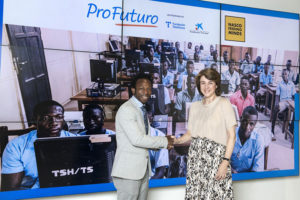
An old African proverb says that “if you want to go fast, go alone, but if you want to go far, you have to go with others”. ProFuturo and NASCO Feeding Minds therefore signed a partnership agreement in September to enable the two organisations to further their respective objectives.
Thus, together with NASCO Feeding Minds, ProFuturo will begin deploying its digital education programme in Ghana. The Foundation will bring its platform, its contents and all its experience in educational innovation to the infrastructure and technological equipment of the educational centres the Ghanaian organisation operates in. “With the aid of ProFuturo, our IT classrooms’ impact will be reinforced when it comes to delivering personalised and transformational learning”, declared Ousman.
Digital tools provide us with a historic opportunity to bring education to the most remote and vulnerable environments, changing the lives of millions of children on the world’s youngest continent.



